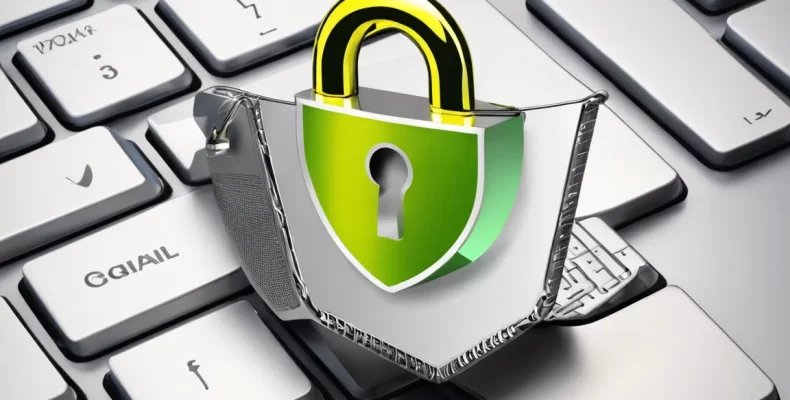5 Essential Tips to Secure Your Website Today
Table of Content
- Introduction to Website Security
- Importance of website security
- Common threats faced by websites
- Tip 1: Keep Software Updated
- Importance of software updates
- How outdated software can lead to vulnerabilities
- Tip 2: Use Strong Passwords
- The significance of strong passwords
- Tips for creating strong passwords
- Tip 3: Implement HTTPS Encryption
- Explanation of HTTPS
- Benefits of HTTPS encryption for website security
- Tip 4: Install Security Plugins
- Overview of security plugins
- How security plugins enhance website protection
- Tip 5: Regular Backups
- Importance of regular backups
- Methods for performing backups
- Conclusion
- Recap of the importance of website security
- Summary of the five essential tips
- FAQs
- What are the consequences of neglecting website security?
- How often should I update my website’s software?
- Can strong passwords really make a difference in website security?
- Do I need technical expertise to implement HTTPS encryption?
- What should I look for in a security plugin for my website?
In today’s digital age, where the internet plays a pivotal role in businesses and personal interactions, ensuring the security of your website is paramount. Websites are vulnerable to various cyber threats, ranging from data breaches to malware attacks, which can compromise sensitive information and damage your reputation. Therefore, it’s crucial to take proactive measures to safeguard your website from potential security breaches. Here are five essential tips to secure your website today.

Introduction to Website Security
Before delving into the tips, let’s first understand the importance of website security. Your website is often the first point of contact between you and your audience, making it a prime target for cybercriminals. From small businesses to large corporations, no entity is immune to cyber threats. Common security risks include malware infections, phishing attacks, and unauthorized access to sensitive data. By prioritizing website security, you can protect your digital assets and maintain the trust of your visitors.
Tip 1: Keep Software Updated
One of the simplest yet most effective ways to enhance website security is by keeping your software updated. Whether it’s your content management system (CMS), plugins, or server software, outdated software poses a significant security risk. Developers regularly release updates to patch vulnerabilities and address security flaws. Failure to install these updates promptly leaves your website vulnerable to exploitation by hackers. Therefore, make it a habit to regularly check for updates and apply them as soon as they become available.
Tip 2: Use Strong Passwords
Passwords serve as the first line of defense against unauthorized access to your website. However, weak or easily guessable passwords provide little protection against determined attackers. To strengthen your website’s security, use strong, complex passwords that combine uppercase and lowercase letters, numbers, and special characters. Avoid using dictionary words or common phrases, as these are susceptible to brute-force attacks. Additionally, consider implementing multi-factor authentication (MFA) for an added layer of security.
Tip 3: Implement HTTPS Encryption
Hyper Text Transfer Protocol Secure (HTTPS) encryption encrypts data transmitted between a user’s browser and your website, ensuring that sensitive information remains secure during transit. In addition to safeguarding user data, HTTPS offers other benefits, such as improved search engine rankings and enhanced trust among visitors. To implement HTTPS encryption, obtain an SSL/TLS certificate from a trusted Certificate Authority (CA) and configure your web server to use HTTPS. Many web hosting providers offer free SSL certificates, making it easy to secure your website.
Tip 4: Install Website Security Plugins
Security plugins are invaluable tools for fortifying your website’s defenses against cyber threats. These plugins offer a wide range of features, including malware scanning, firewall protection, and real-time threat detection. By installing a reputable security plugin, you can automate security tasks and receive timely alerts about potential security risks. Look for plugins that are regularly updated and supported by a dedicated team of developers. Conduct thorough research and read reviews to find the best security plugin for your website’s needs.
Tip 5: Regular Backups
Despite your best efforts to secure your website, unforeseen circumstances such as server crashes or malware infections can still occur. That’s why regular backups are essential for mitigating the impact of such incidents. By backing up your website’s files and databases regularly, you can restore your site to a previous state in the event of data loss or corruption. Choose a reliable backup solution that offers automated backups and secure storage options. Store backup copies offsite or in the cloud to ensure redundancy and accessibility.
Conclusion
Securing your website is not a one-time task but an ongoing commitment to protecting your digital assets and preserving the trust of your visitors. By implementing the five essential tips outlined in this article—keeping software updated, using strong passwords, implementing HTTPS encryption, installing security plugins, and performing regular backups—you can significantly enhance your website’s security posture and minimize the risk of cyber threats.
FAQs
- What are the consequences of neglecting website security? Neglecting website security can lead to various consequences, including data breaches, loss of sensitive information, damage to reputation, and financial losses due to downtime or legal liabilities.
- How often should I update my website’s software? It’s recommended to update your website’s software as soon as updates become available. Regularly check for updates and apply them promptly to patch vulnerabilities and enhance security.
- Can strong passwords really make a difference in website security? Yes, strong passwords significantly improve website security by making it harder for attackers to guess or brute-force their way into your accounts. Using complex passwords is an essential security measure.
- Do I need technical expertise to implement HTTPS encryption? While implementing HTTPS encryption may require some technical knowledge, many web hosting providers offer easy-to-use tools and support for enabling HTTPS on your website. You can also seek assistance from web developers or security professionals if needed.
- What should I look for in a security plugin for my website? When choosing a security plugin for your website, consider factors such as features offered (malware scanning, firewall protection, etc.), ease of use, compatibility with your CMS, frequency of updates, customer support, and user reviews. Opt for plugins from reputable developers with a track record of reliability and security expertise.







